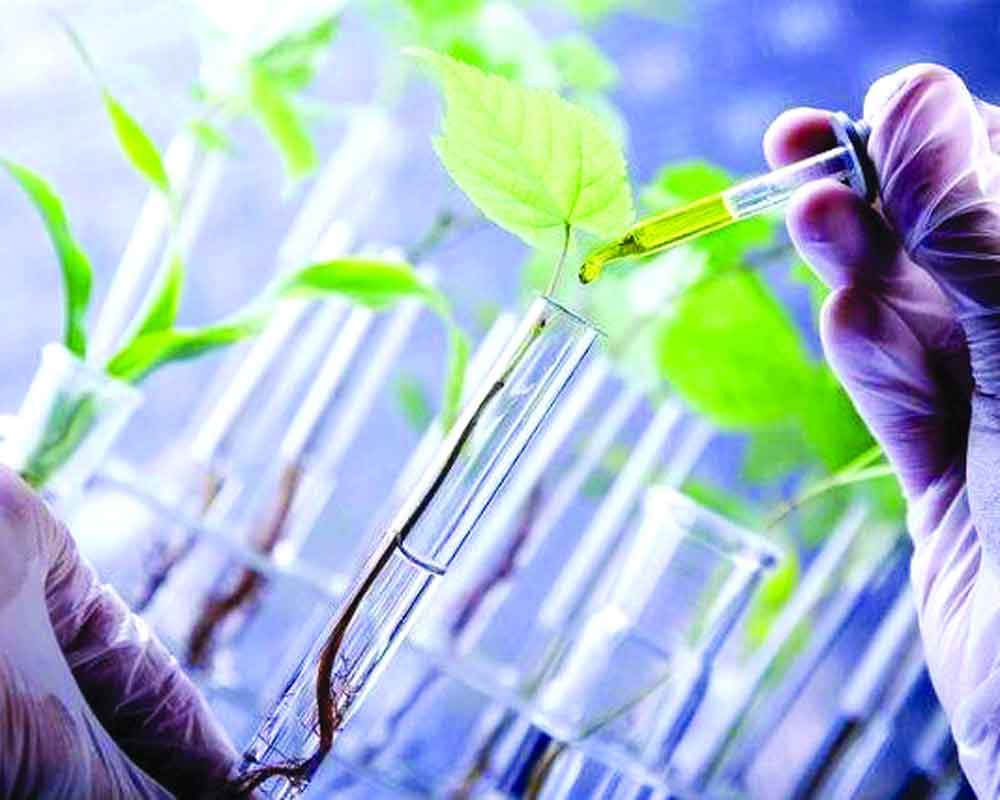Biotechnology in India has had an exhilarating journey from research to translation. However, the next most important task is to ensure its sustainability and scalability
The future standard of living, economic growth and societal progress are largely dependent on the ability to innovate. In the words of Prime Minister Narendra Modi, it is time to redefine research and development as “research for development” of the nation. The Prime Minister has ubiquitously reaffirmed his belief that it is prudent and imperative to reach the lowest rung of the pyramid through science and technology.
Established in 1986, the Department of Biotechnology has been a catalyst in spearheading innovative solutions for developmental challenges. Biotechnology as a field has been defined in simple words as “The use of biological processes, organisms, or systems to manufacture products intended to improve the quality of human life”. As the field has progressed, the Department of Biotechnology has made significant strides and aided in the economic and social growth of the country.
From research spanning prevention and cure for major diseases, to addressing the challenges of improved agriculture productivity, to developing innovative solutions for national nutrition needs and a clean environment, the Department is leading the way for pathbreaking biotechnological research.
Over the last three decades, the Department of Biotechnology has created a very strong research and translation ecosystem across the country and built strong foundations, leveraging the strength of national and international partnerships. With more than 15,000 scientists and 800 institutes and laboratories supported, today nearly 10,000 biotechnology research fellows and students are supported annually. World-class state-of-the-art infrastructure has been created, which through the Department of Biotechnology’s SAHAJ scheme has now been made accessible to all researchers and start-up to take research and innovation to the furthest corner of the country. Skill Vigyan Life Science and biotechnology centres help build an employable skilled human resource base.
The Department has also made significant contributions to the growth of the nation by aligning its work to the national growth agenda and developing innovative solutions for the national missions of Swasth Bharat, Ayushman Bharat, Swachchh Bharat, Poshan Abhiyan, Start-up India, Make in India, and Skill India.
Scientists from academia and industry have successfully delivered to the country climate resilient and disease and pest resistant varieties of rice, wheat and maize. Other achievement includes the first technology for fortified rice, the first indigenous Rotavirus vaccine which is now in the universal immunisation programme and the first technology for 2G Ethanol from agriculture waste that is now being scaled up in a commercial refinery. More than 1,000 start-ups and entrepreneurs under BIRAC and the Department of Biotechnology’s SIB programme have developed affordable products, including low cost devices, implants and diagnostics for healthcare.
To take scientific research from the laboratory to the end user, the Department of Biotechnology has built an ecosystem which allows for seamless movement of research through translation phase to commercialisation. 16 institutions, 4 bio-clusters, 2 public sector undertakings and over 5,000 extramural research projects contribute to this. We have seen a growing transition over these years moving from single investigator to multi investigator projects, from single institute to multi institute projects, from only academia research to industry-academia innovation research and translation. New institutional partnership and governance models have emerged.
Priority missions on antimicrobial resistance (AMR), clean energy, genomics and big data, vaccines, biotic and abiotic stress resistant and nutritionally enriched crop variety development and the National Biopharma Mission are important initiatives, contributing to move the biotechnology growth trajectory forward. Integration of new and emerging technologies, linking biological science with data science, with clinical research, with engineering sciences, is the way forward in preparation of meeting our ambitious target of achieving a USD 100 billion bio-economy by 2025.
The Department of Biotechnology has also been a key in forging strategic international alliances to promote knowledge sharing and discovery, with more than 25 active partnerships which bring in a commitment of scientific collaboration, researcher mobility and collective efforts to address common national and global challenges
As we move forward, our challenge is not just to strengthen the research and translation base but to ensure sustainability and scalability. The Department has consistently brought to the fore the importance of science in all walks of life and has integrated innovation with national development. The Department of Biotechnology has promoted science and technology as a way of thinking and envisions to continue to do so and be a critical part of India’s growth story.
(The writer is Secretary, Department of Biotechnology, Government of India)
























